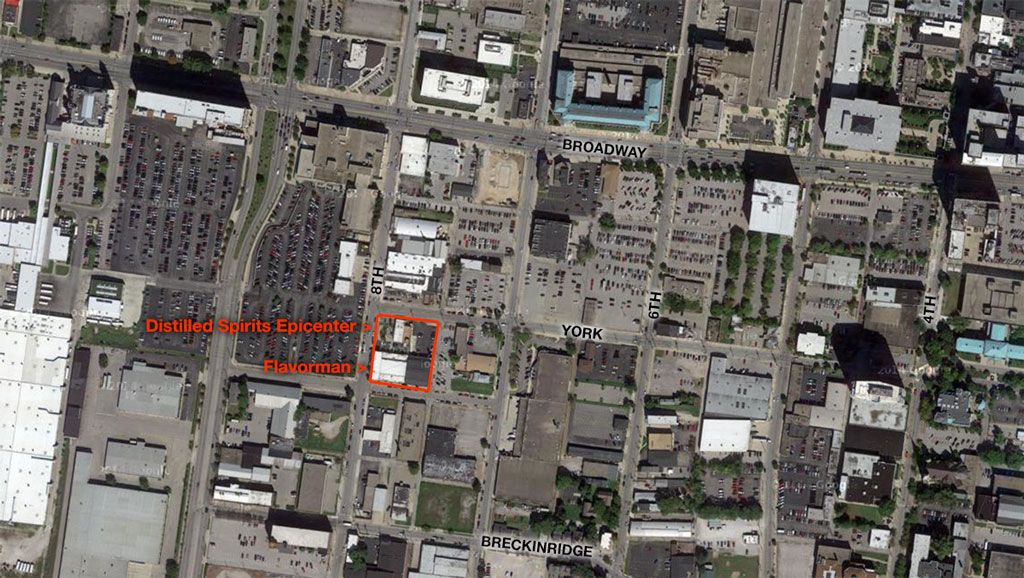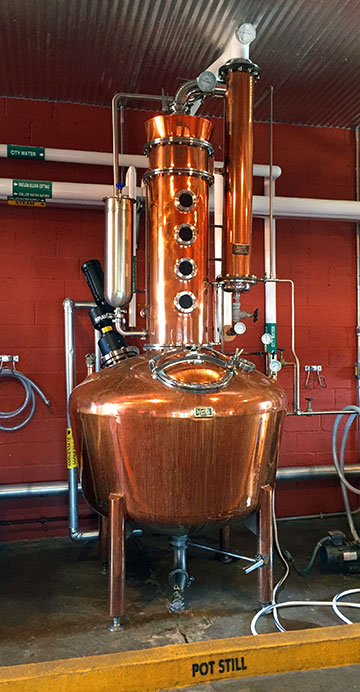Mar. 09, 2016
Large scale developments certainly have the potential to immediately transform their local area and beyond, but they take a great deal of time and often require large incentives to lure companies and developers to the table, particularly for urban infill projects. Sometimes smaller scale projects can have a big impact and begin to improve both the experience and the perception of neighborhoods much quicker. On a recent tour of Flavorman and the Distilled Spirits Epicenter in Louisville, we had a chance to see a great example of this in action.
For close to a decade the Urban Design Studio has been touting the SoBro neighborhood as an opportunity for a renewed and vibrant urban neighborhood adjacent to downtown. Much of the focus in SoBro has been along the 3rd and 4th Street corridors and the existing amenities like Spalding University, the downtown Public Library, and Presentation Academy. However, the more industrial area between 6th and 9th Street has often been forgotten in the discussion.

Walking around the area a few weeks ago, we stumbled on Flavorman and the Distilled Spirits Epicenter on 8th Street. Both businesses are beautiful examples of adaptive reuse, with Flavorman housed in a reclaimed warehouse that once repaired carriage wheels, and the Distilled Spirits Epicenter in an old service station that now is home to Moonshine University and the Grease Monkey Distillery. Beyond the reuse of the old buildings, they worked with MSD to reroute the stormwater runoff from the buildings to a handsome rain garden in front of the Distilled Spirits Epicenter. The rain garden not only functions to filter the water and reduce the amount that enters the city drains but creates a beautiful landscape for the outdoor patio and classroom that opens up onto the space.
The buildings immediately caught our attention as they look like something you might expect to see in NuLu or Butchertown, not the old industrial landscape they reside in. This wasn’t by accident, the leadership of the organizations have a particular affinity for saving old buildings and the importance such projects can have on transforming the area. And as we learned, the historic, industrial area enhances the experience of what is going on inside.
 The neighborhood improvements go well beyond the exterior facades and landscaping. Unknown to us before our tour last week, Moonshine University, the educational component of the Epicenter that opened in 2012, is attracting people from around the world to learn the art of distilling from an astounding array of expert faculty with hands on experience at the Grease Monkey Distillery, a fully functioning, state-of-the-art artisan distillery. Grease Monkey Distillery features another amazing Louisville-based company’s products, the Vendome Copper and Brass Works batch distillation systems that are like beautiful steam-punk pieces of art, equipped to distill spirits of all kinds.
The neighborhood improvements go well beyond the exterior facades and landscaping. Unknown to us before our tour last week, Moonshine University, the educational component of the Epicenter that opened in 2012, is attracting people from around the world to learn the art of distilling from an astounding array of expert faculty with hands on experience at the Grease Monkey Distillery, a fully functioning, state-of-the-art artisan distillery. Grease Monkey Distillery features another amazing Louisville-based company’s products, the Vendome Copper and Brass Works batch distillation systems that are like beautiful steam-punk pieces of art, equipped to distill spirits of all kinds.
Together with The Distilled Spirits Epicenter’s sister company Flavorman, the two create a unique beverage campus that offers a catalyst for a neighborhood that is estimated to have almost 60% surface lots, and brings a world-class amenity to our city. The development is a great example of urban acupuncture that offers a glimpse into the amazing potential this area has to become a vibrant and innovative laboratory for entrepreneurs and companies invested in one of Louisville’s major economic drivers, the food and beverage industry. Strolling around the adjacent blocks we could envision a host of new businesses building on their transformational efforts.
If you are interested in learning more about The Distilled Spirits Epicenter and Flavorman, you won’t want to miss the upcoming PechaKucha Night Louisville event on April 14th at Tim Faulkner Gallery where Creative Director and Headmaster of Liquorial Studies, Colin Blake, will give a presentation along with other talks focused on food and beverage.



 View photostream on flickr
View photostream on flickr